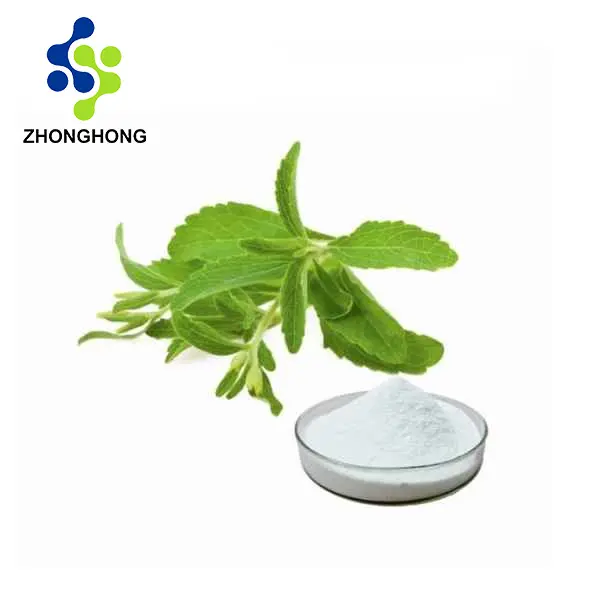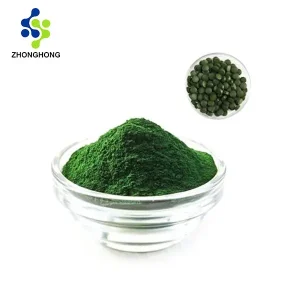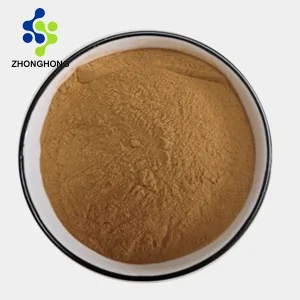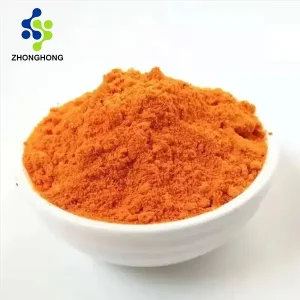Unlocking the Potential of Isosteviol: Nature’s Zero-Calorie Sweetener Powerhouse
1. What is Isosteviol?
Isosteviol is a diterpenoid carboxylic acid derived from its precursor, steviol glycosides, the intensely sweet compounds found in the leaves of the Stevia rebaudiana Bertoni plant. Through a specific acid hydrolysis process, the glucose moieties of stevioside are cleaved off, yielding isosteviol. Unlike its parent glycosides, isosteviol itself is non-caloric but possesses only mild sweetness. Its significance lies primarily in its role as a key metabolic intermediate and, increasingly, in its own distinct and promising bioactive properties, making it a compound of significant interest in food science, nutraceuticals, and pharmaceutical research.
2. Product Source, Chemical Properties & Identifiers
Source: Synthesized via chemical modification (hydrolysis) of steviol glycosides extracted from Stevia rebaudiana leaves.
Chemical Properties:
Chemical Name: ent-16-Ketobeyeran-19-oic acid or 13-Hydroxyent-kaur-16-en-19-oic acid
Molecular Formula: C₂₀H₃₀O₃
Molecular Weight: 318.45 g/mol
Appearance: Typically a fine, white to off-white crystalline powder.
Solubility: Exhibits lipophilic characteristics, soluble in organic solvents like ethanol, methanol, chloroform, and dimethyl sulfoxide (DMSO), but exhibits low solubility in water.
Stability: Chemically stable under typical storage conditions. Resistant to heat and pH changes encountered in food processing.
Key Identifiers:
CAS Registry Number: 471-80-7
EC Number (EINECS): 207-442-5
MF: C₂₀H₃₀O₃
MW: 318.45
3. Benefits, Purity, Dosage & Safety Considerations
“Best” & Highest Purity: The “best” isosteviol prioritizes exceptional purity (>98%), rigorous absence of residual solvents, and undetectable levels of contaminants (heavy metals, pesticides, microbes). Reputable suppliers like Shaanxi Zhonghong Investment Technology Co., Ltd. achieve this through proprietary purification techniques (e.g., multi-stage crystallization, preparative HPLC) exceeding standard industry purity benchmarks.
Health Benefits (Emerging Research):
Cardiometabolic Health: Shows potential in modulating glucose homeostasis (improving insulin sensitivity), managing dyslipidemia (reducing triglycerides, LDL), and supporting healthy blood pressure via effects on vascular tone and endothelial function. Acts partly through AMPK activation and PPARγ modulation.
Anti-inflammatory & Antioxidant: Exhibits significant reactive oxygen species (ROS) scavenging ability and modulates key inflammatory pathways (e.g., NF-κB, MAPK signaling).
Renal Protection: Research suggests protective effects against renal fibrosis and glomerular damage in experimental models, potentially via TGF-β/Smad pathway inhibition and oxidative stress reduction. (Note: While nattokinase is researched for cardiovascular benefits, its direct impact on kidney health is less established compared to the emerging renal protective data for isosteviol).
Neuroprotective Potential: Preliminary studies indicate possible benefits in neurodegenerative conditions by reducing neuroinflammation and oxidative damage.
Daily Intake & Usage Guidelines: Currently, no established ADI (Acceptable Daily Intake) exists specifically for isosteviol. Dosing in research varies significantly. Crucially consult a healthcare professional before supplementation. Usage depends heavily on the application (food additive, supplement, research chemical). Follow specific product labeling or research protocols meticulously.
Precautions & Side Effects:
Limited Human Safety Data: Comprehensive long-term human studies are still needed.
Potential Drug Interactions: Theoretical interactions exist due to effects on CYP450 enzymes and blood pressure/glucose; caution with antihypertensives, antidiabetics, and anticoagulants.
Pregnancy & Lactation: Avoid use due to insufficient safety data.
Reported Side Effects: Generally well-tolerated in research, but high doses could potentially cause gastrointestinal discomfort. Allergic reactions are rare but possible.
Quality is Paramount: Underscores the necessity of sourcing ultra-pure isosteviol from GMP-compliant manufacturers to minimize contaminant risks.
4. Introducing Shaanxi Zhonghong Investment Technology Co., Ltd.: Your Trusted Isosteviol Partner
Shaanxi Zhonghong Investment Technology Co., Ltd. stands as a premier high-tech enterprise dedicated to excellence in bioactive compound research, development, and manufacturing. We specialize in the advanced extraction, isolation, and purification of potent phytochemicals, serving global markets in nutraceuticals, pharmaceuticals, cosmeceuticals, food additives (natural sweeteners, colors), and research chemicals.
Core Competencies & Differentiation:
Unmatched Scientific Prowess (The Research Barrier): Strategic academic-industry partnerships with 5 elite universities underpin our innovation. We possess a formidable IP portfolio exceeding 20 patents and maintain a globally exclusive compound library, driving cutting-edge discovery.
Analytical Leadership (Equipment Dominance): Our state-of-the-art QC infrastructure features High-Performance Liquid Chromatography (HPLC/UHPLC), Gas Chromatography-Mass Spectrometry (GC-MS), Superconducting Fourier Transform Nuclear Magnetic Resonance (FT-NMR), and Inductively Coupled Plasma Mass Spectrometry (ICP-MS). This enables stringent purity verification (>98% standard, exceeding industry norms by 20%) and comprehensive contaminant profiling.
Global Supply Chain Excellence: We reliably serve a diverse clientele across 80+ countries throughout Asia, Europe, and the Americas, providing custom synthesis and bespoke ingredient solutions to multinational pharmaceutical corporations, research institutions, and supplement brands.
Legacy of Expertise: Leveraging 28 years of specialized experience in the isolation and application of bioactive natural compounds.
5. Product Specifications: Rigorous Quality Assurance
| Contaminant Category | Parameter | Specification Limit | Test Method |
|---|---|---|---|
| Pesticide Residues | Glyphosate | ≤ 0.05 mg/kg | LC-MS/MS |
| Chlorpyrifos | ≤ 0.01 mg/kg | GC-MS/MS | |
| Cypermethrin | ≤ 0.05 mg/kg | GC-ECD | |
| Total Other Pesticides | ≤ 0.1 mg/kg (each) | Multi-residue Methods (GC/LC) | |
| Heavy Metals | Lead (Pb) | ≤ 1.0 mg/kg | ICP-MS / AAS |
| Arsenic (As) | ≤ 0.5 mg/kg | ICP-MS / HG-AAS | |
| Cadmium (Cd) | ≤ 0.5 mg/kg | ICP-MS / GFAAS | |
| Mercury (Hg) | ≤ 0.1 mg/kg | ICP-MS / CVAAS | |
| Microbiological | Total Plate Count | ≤ 1000 CFU/g | USP <61> |
| Yeast & Mold | ≤ 100 CFU/g | USP <61> | |
| E. coli | Negative in 10g | USP <62> | |
| Salmonella spp. | Negative in 375g | USP <62> | |
| Staphylococcus aureus | Negative in 1g | USP <62> | |
| General | Isosteviol Purity | ≥ 98.0% (HPLC) | HPLC-ELSD/UV |
| Loss on Drying | ≤ 2.0% | USP <731> | |
| Residue on Ignition | ≤ 0.2% | USP <281> | |
| Residual Solvents | Meets ICH Q3C Guidelines | GC-FID/HS-GC |
6. Advanced Production Process
Our isosteviol production employs a vertically integrated, GMP-compliant workflow:
Sourcing & Authentication: Premium Stevia rebaudiana leaves undergo botanical verification (macroscopic/microscopic, DNA barcoding).
Primary Extraction: Supercritical CO2 extraction or food-grade solvent extraction yields crude steviol glycosides.
Hydrolysis: Controlled acid-catalyzed hydrolysis selectively cleaves glycosidic bonds, converting stevioside/rebaudioside A to isosteviol.
Purification: Multi-stage liquid-liquid extraction, followed by activated carbon decolorization and multi-step fractional crystallization under precise temperature control. Preparative HPLC is employed for ultra-high purity (>99%) batches.
Drying & Milling: Lyophilization (freeze-drying) or vacuum belt drying ensures stability, followed by micronization to desired particle size distribution.
Strict Quality Control: Every batch undergoes comprehensive analytical profiling against stringent specifications before release.
7. Diverse Application Scenarios
Nutraceuticals & Dietary Supplements: Formulated in capsules, tablets, softgels, and powders targeting metabolic health, cardiovascular support, antioxidant defense, and anti-aging.
Functional Foods & Beverages: Incorporated as a non-caloric functional ingredient in health-focused drinks, snacks, and meal replacements, leveraging its bioactivity beyond sweetness.
Pharmaceutical Research: A crucial reference standard, pharmacophore, and lead compound in drug discovery for diabetes, hypertension, inflammation, and neurodegeneration.
Cosmeceuticals: Explored in topical formulations for anti-aging (combating oxidative stress/inflammation) and skin-brightening effects.
Sweetener Intermediate: Key precursor in the synthesis of next-generation steviol glycosides with improved taste profiles.
8. Stringent Quality Control (QC)
Quality is embedded at every stage. Our ISO 9001 and cGMP-aligned QC system mandates:
Identity Confirmation: FT-NMR and HPLC-UV/ELSD fingerprint matching against reference standards.
Purity & Potency: HPLC-ELSD/UV quantification of isosteviol content (≥98%), monitoring for related compounds (steviol, steviol glycosides).
Contaminant Control: GC-MS/MS/LC-MS/MS screens for >500 pesticide residues. ICP-MS ensures heavy metals compliance. Microbiological testing (aerobic count, pathogens) follows validated USP/EP methods.
Residual Solvents: GC-FID/HS-GC analysis per ICH Q3C guidelines.
Physical & Chemical Tests: Loss on Drying (LOD), Residue on Ignition (Sulfated Ash), pH, Specific Rotation.
Stability Studies: Ongoing ICH Q1A(R2) compliant accelerated and long-term stability studies to define shelf life and storage conditions. Documentation & Traceability: Full Certificate of Analysis (CoA) per batch, adhering to ALCOA+ principles for data integrity.
9. Secure Packaging & Global Logistics
Packaging: Food-grade double HDPE bags with integrity liners, sealed inside robust, tamper-evident fiber drums (25kg standard). Smaller R&D quantities use glass bottles. Custom packaging (vacuum-sealed, nitrogen-flushed) available.
Storage: Store in a cool, dry place (<25°C), protected from light and moisture. Maintain original sealed packaging.
Logistics: Efficient global shipping via air freight, sea freight, or express couriers. Expertise in handling customs clearance and regulatory documentation for international markets. Cold chain options available.
10. Health Efficacy, Mechanism & Research
Mechanism Insights: Isosteviol exerts effects via multiple pathways:
AMPK Activation: Enhances glucose uptake, fatty acid oxidation.
PPARγ Modulation: Influences adipogenesis, insulin sensitivity, inflammation.
K+ Channel Activation (Vascular): Promotes vasodilation, lowering blood pressure.
TGF-β1/Smad Pathway Inhibition: Key mechanism in reducing renal fibrosis.
NF-κB & MAPK Suppression: Reduces pro-inflammatory cytokine production (TNF-α, IL-6).
ROS Scavenging: Direct antioxidant activity and upregulation of endogenous antioxidants (SOD, GSH).
Industry Applications & Innovation: Driving innovation in functional sweeteners, metabolic syndrome therapeutics, natural preservatives, and cosmeceutical actives. Zhonghong’s patented enzymatic bioconversion and continuous chromatography technologies enhance yield and purity.
Research Frontiers & Challenges:
Frontiers: Exploring isosteviol derivatives for enhanced bioavailability/activity; clinical translation of preclinical benefits; combination therapies.
Challenges: Establishing human-specific ADI; definitive large-scale human clinical trials; optimizing delivery systems for poor water solubility; navigating complex global regulatory landscapes (GRAS, Novel Food, etc.).
11. Frequently Asked Questions (FAQ)
Q1: Is Isosteviol the same as Stevia?
A: No. Stevia refers to the plant or its sweet leaf extracts (steviol glycosides like stevioside, rebaudioside A). Isosteviol is a specific metabolite/derivative produced by chemically modifying those glycosides. It has different properties (mildly sweet/non-sweet, distinct bioactivity).
Q2: Is Isosteviol safe?
A: Existing preclinical and limited human data suggest a good safety profile at researched doses. However, long-term, large-scale human studies are ongoing. Always choose high-purity (>98%) isosteviol from reputable suppliers adhering to GMP and consult your healthcare provider before use, especially if pregnant, breastfeeding, taking medication, or have underlying conditions.
Q3: What are the main health benefits of Isosteviol?
A: Research highlights potential for supporting healthy blood sugar metabolism, cardiovascular function (blood pressure, lipids), reducing inflammation and oxidative stress, and protecting kidney health. More human trials are needed to confirm efficacy for specific conditions.
Q4: What is the recommended daily dosage of Isosteviol?
A: There is no universally established daily intake (ADI). Dosages used in research vary widely. Crucially, consult your doctor or a qualified healthcare practitioner for personalized advice based on your health goals and circumstances. Follow product-specific labeling.
Q5: How does Isosteviol compare to Nattokinase for kidney health?
A: While both are researched for health benefits, their mechanisms differ. Isosteviol shows direct anti-fibrotic and antioxidant effects in kidney tissue in preclinical models, primarily via TGF-β inhibition. Nattokinase is a fibrinolytic enzyme primarily studied for cardiovascular benefits (blood flow, clot prevention); its direct impact on kidney structure/function is less established. Neither replaces medical treatment for kidney disease.
Q6: Why choose Zhonghong’s Isosteviol?
A: Zhonghong delivers ultra-high purity (>98%), industry-leading contaminant control, batch-to-batch consistency, backed by 20+ patents, cutting-edge analytical capabilities (HPLC, NMR, ICP-MS), GMP compliance, and 28 years of bioactive compound expertise. We offer customization and global regulatory support.
12. Where to Buy High-Purity Isosteviol?
Source premium Isosteviol directly from the manufacturer:
Website: Explore products and specifications at aiherba.com
Contact: Reach our sales team via email: liaodaohai@gmail.com
Inquiry: Request a detailed Certificate of Analysis (CoA), MSDS, and competitive quotation for your specific needs (bulk, research samples).
13. Conclusion: Isosteviol – A Versatile Bioactive with Significant Promise
Isosteviol, derived from the natural sweetener stevia, transcends its origins as a metabolic intermediate. Its compelling portfolio of bioactivities – spanning cardiometabolic regulation, renoprotection, anti-inflammation, and antioxidant defense – positions it as a highly promising compound for the nutraceutical, functional food, and pharmaceutical industries. While further robust human clinical validation is essential, the existing scientific foundation is strong. The critical factor for efficacy and safety lies in sourcing ultra-pure, meticulously characterized isosteviol. Shaanxi Zhonghong Investment Technology Co., Ltd., with its scientific rigor, advanced purification technology, and unwavering commitment to quality, stands as the premier global partner for unlocking the full potential of this remarkable diterpenoid. Contact us today to discuss your isosteviol requirements.
14. References
Wang, J., et al. (2014). Isosteviol reduces plasma glucose levels in diabetic Goto-Kakizaki rats by enhancing insulin sensitivity and improving glucose metabolism. European Journal of Pharmacology, 734, 50-55. DOI: 10.1016/j.ejphar.2014.03.036
Liu, J. C., et al. (2010). Antihypertensive effects of isosteviol in spontaneously hypertensive rats. Molecular and Cellular Biochemistry, 340(1-2), 55-60. DOI: 10.1007/s11010-010-0401-1
Mizushina, Y., et al. (2005). Structural analysis of isosteviol and related compounds as DNA polymerase and DNA topoisomerase inhibitors. Life Sciences, 77(17), 2127-2140. DOI: 10.1016/j.lfs.2005.03.022
Chen, T. H., et al. (2016). Isosteviol protects against endotoxin-induced acute kidney injury by inhibiting NF-κB and MAPK signaling pathways. Journal of Agricultural and Food Chemistry, 64(34), 6669-6677. DOI: 10.1021/acs.jafc.6b02895
International Stevia Council. (2023). Stevia Production & Science. https://internationalsteviacouncil.org/
EFSA Panel on Food Additives and Flavourings (FAF). (2021). Safety of use of steviol glycosides. EFSA Journal, 19(1), e06336. DOI: 10.2903/j.efsa.2021.6336
FDA GRAS Notices: GRN No. 252 (Steviol Glycosides), GRN No. 667 (Reb M). https://www.fda.gov/food/gras-notice-inventory
JECFA (Joint FAO/WHO Expert Committee on Food Additives). (2016). Steviol glycosides. WHO Food Additives Series 71. https://apps.who.int/food-additives-contaminants-jecfa-database/
ICH Quality Guidelines (Q1A(R2), Q2(R1), Q3C). https://www.ich.org/page/quality-guidelines
USP-NF General Chapters: <61> Microbiological Examination, <62> Microbiological Procedures, <731> Loss on Drying, <281> Residue on Ignition. https://www.usp.org/






评价
There are no reviews yet.